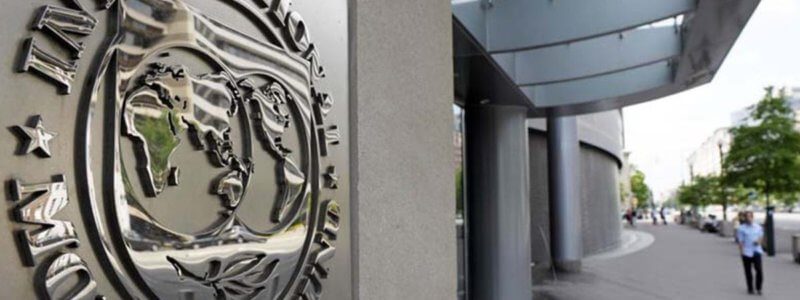
The mission of the International Monetary Fund (IMF) led by Ron van Rooden started working in Kyiv on Thursday, the IMF representative office in Ukraine has told Interfax-Ukraine. The IMF representative office said that the mission arrived in Kyiv the day before.
As IMF Resident Representative in Ukraine Goesta Ljungman reported in the middle of August, the IMF mission will visit Kyiv during September 6-19, 2018, to discuss recent economic developments and policies.
Ljungman also said that the mission will also discuss next steps, including financial assistance from the IMF in support of policies to maintain macroeconomic stability and keep the economy on a path toward sustainable and inclusive growth.
Ukraine’s Acting Finance Minister Oksana Markarova said that Ukraine plans to discuss all current issues with the IMF and continuation of cooperation after the completion of the Extended Fund Facility (EFF) in March 2019.
According to her, the successful fourth review of the IMF EFF and the receipt of the fifth tranche of $2 billion will open the way to attract financing to the national budget on preferential terms, using the World Bank’s guarantee for$ 800 million, as well as receiving macro-financial assistance from the EU for EUR 1 billion.
In turn, NBU Governor Yakiv Smolii said that approaching the prospect of receiving financing from the IMF will have a positive impact on the state of the currency market of Ukraine and will also improve the government’s ability to borrow on the international capital markets.
“The arrival of the IMF mission to Kyiv is a step towards reducing uncertainty regarding the further development of the situation in the Ukrainian economy and improving the expectations of market participants,” the head of the NBU said in the middle of August.
As reported, the four-year-EFF program worth SDR 12.348 billion (about $17.46 billion at the current forex rate) was launched in March 2015 with a first disbursement of $5 billion. It originally suggested a quarterly review of the program, the allocation of three more tranches worth SDR 1.18 billion each in 2015 and a reduction in quarterly disbursements in 2016-2018 to SDR 0.44 billion ($0.61 billion).
Under the ongoing program, Ukraine has managed to receive a second tranche worth $1.7 billion early in August 2015 with a little delay, which was followed by a long break as Ukraine had failed to meet a number of conditions, which was aggravated by the political crisis and government reshuffles.
Talks on further financing resumed after the appointment of a new Cabinet of Ministers headed by Volodymyr Groysman in April 2016. However, the IMF decided to issue a third disbursement worth $1 billion only in the middle of September 2016 and a fourth one on April 3, 2017.
Since July 2017 Ukraine has been in a complicated negotiating process with the International Monetary Fund (IMF) on the gas issue. The IMF insists on raising the price of gas for the population, which, according to various estimates, may range from 30% to 60% due to rising prices in international markets, while the prime minister had previously pointed out the irrationality of such a sharp increase.
A government source said that during this period Ukraine offered the IMF at least eight options of changing the formula for gas prices, based on observance of the principles agreed upon with the IMF.
The Fund’s position is quite tough, as the government last year decided to raise gas prices that allowed Ukraine to receive a tranche from the IMF, but subsequently unilaterally refused to implement it.
IMF Managing Director Christine Lagarde on June 19, 2018 said that the implementation of the actions related to gas prices is critical to allow the completion of the pending review under Ukraine’s IMF-supported program.
She said that another action is critical: observing the upper limit for the budget deficit.